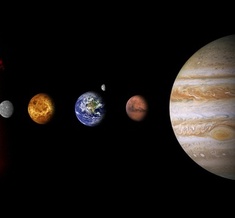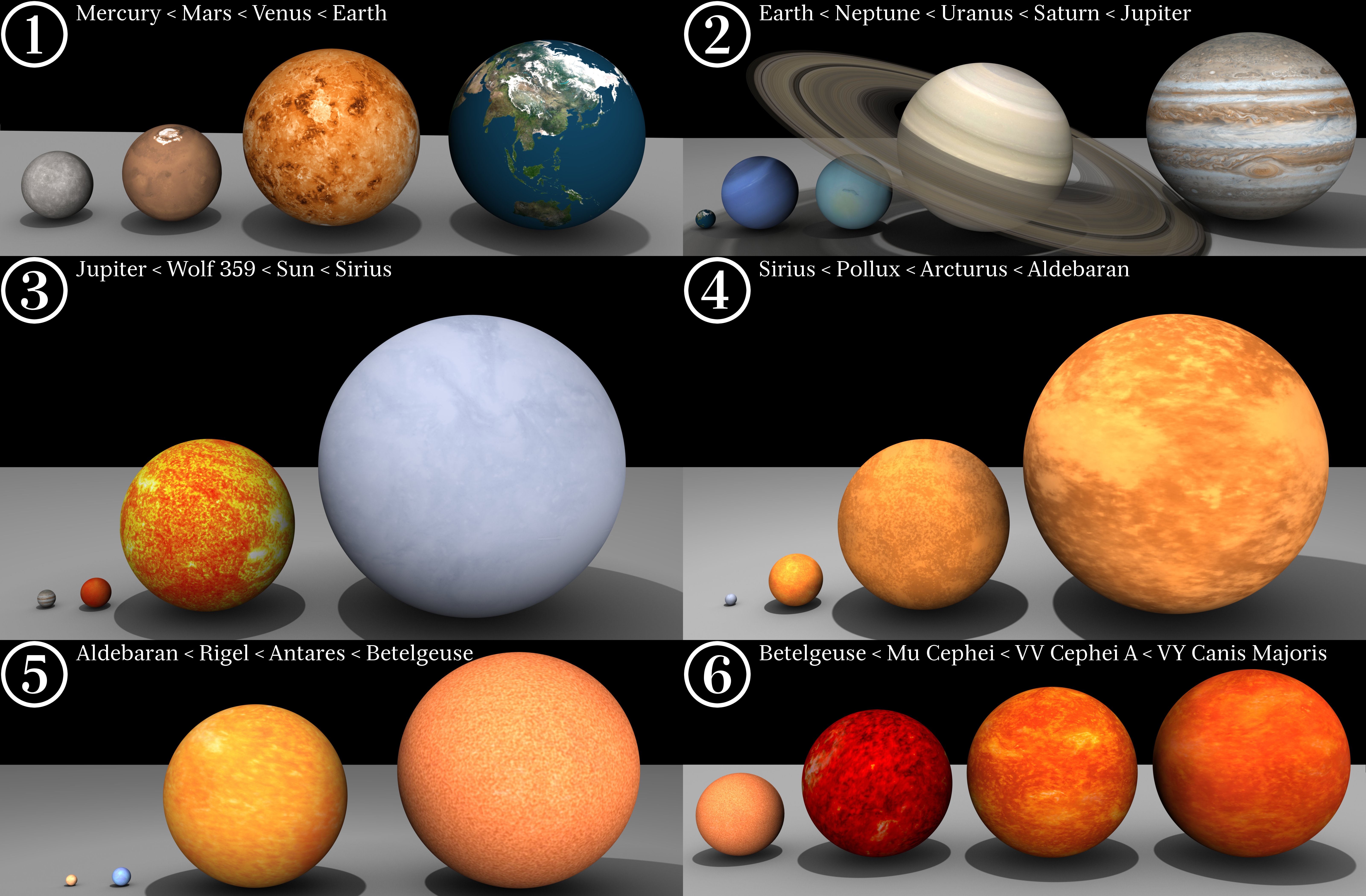
How old am I on different planets? 🌍
Last updated: Wednesday August 5th, 2020
Report this blog
I've been having some fun learning about some of the dimensions of the solar system. One of them is;
Diameters of the planets and stars-

Did you know Jupiter's diameter is about 11 times that of Earth? And the Sun's diameter is about 10 times that of Jupiter's. The diameter of the star Betelgeuse in the constellation Orion is about 300 times that of our sun.
If you were able to travel at the speed of light, you could go around the Earth seven times in one second. But it would take you over an hour to travel around Betelgeuse.
Another interesting dimension is;
Rotational period (or day length)-
On your planet the day is just about 24 hours long.
Whereas on Mars the day is 25 hours long. But it is believed that Earth's day length will eventually increase to 25 hours, as the planet's rotation is slowing every so slightly (by about 2 miliseconds every 100 years). At this rate there'll be 25 hours in the day in about 200 million years, which either means an extra hour of work, or an extra hour in bed. Assuming by then the Earth's orbital period (time it takes to orbit the sun) stays the same, then there'll only be 350 days in a year, shaving off about two weeks.
The gas giants rotate much faster. A day on Jupiter lasts just 10 hours.
Mercury and Venus rotate much much slower. A day on Mercury lasts 1,408 hours. A day on Venus lasts 5,832 hours. Considering a year on Venus lasts 5,392 hours, that actually means a day lasts longer than a year on that planet.
Yet another interesting dimension is;
Distances-
🌞 🌎It's quite hard to conceptualise the distances of celestial objects in space because they are so staggeringly vast, but here's an analogy that may help;
If the sun were the size of a large beach ball, then Pluto would orbit over 3 miles away from it. Earth would orbit about 1 mile away.
Uranus is about halfway between the sun and Pluto.
The distance between the Earth and the Moon is wide enough that you could fit every other planet in the solar system in there almost perfectly.
And sometimes on its orbital path Pluto can come closer to the Sun than Neptune.
And a particularly interesting dimension, and the main theme of this post is;
Orbital Period (year)-
Orbital Period is basically the length of time it takes for something to do one full orbit around the thing that it is orbiting. For example the Moon's orbital period is about 27 days, which means it takes 27 days for the moon to do a full orbit around planet Earth. The Earth's orbital period is 365 days, so it takes 365 days to fully orbit the Sun. Well strictly speaking it's 365 days and about five hours, which is why we have 366 days every fourth year, called a Leap Year.
Neptune was first officially observed in 1846. Considering that was 174 years ago, and its orbital period is 164 years, it has been just over one Neptune year since the planet was first seen from Earth.
Logically, the closer you are to something = the shorter your orbital period, and correspondingly, the further away you are from something = the longer your orbital period.
It got me thinking, I know how old I am on Earth, but how old would I be on other planets in the Solar System?
Here are the approximate orbital periods of the Solar System's celestial bodies-
Bear in mind that 'days' means Earth days (i.e. 24 hours) and 'years' is Earth years (i.e. 8,760 hours). So if 365 days is one Earth year, then 88 days = one Mercury year. And for every time Saturn goes round the Sun once, the Earth will have gone round at least 29 times.
From these data, and accounting for Leap Years, I can calculate approximately how old I am on each planet.
How do I calculate my age on different planets too?
Every year on Earth = about 4.1 years on Mercury, so if you want to calculate your Mercurian age, just multiply your Earth age by 4.1.
One Venusian year = about 1.6 years on Earth, so just multiply your Earth age by 1.6 to calculate how old you are on Venus.
Earth orbits the Sun almost twice as fast as Mars, so your Mars age will be slightly more than half your Earth age.
For the remaining planets, all you need to do is divide your age in Earth years by their respective orbital period.
For example to calculate my age on Jupiter;
27 Earth years divided by 11.86 (Jupiter's orbital period in Earth years) = 2.27,
If you want to really exercise your mental arithmetic, you can calculate your age on other planets in different ways. You could break your age down into days rather than using years, or if you want to be really accurate you could break it down into hours.
But even these calculations are just for planets in this solar system, there are many more planets beyond:
The Alpha Centauri triple star system is the closest star system to this one (about 4 light-years away), made up of three stars; Alpha Centauri A and Alpha Centauri B which form a Binary star system (like the stars of Tatooine) and the third star, the red dwarf called Proxima Centauri, orbits them both. The distance of Proxima Centauri from Alpha Centauri A&B is just under 2 quadrillion km, which is over X4 the distance Neptune is from the sun! Its orbital period around A&B is about 550,000 years. This means, as Proxima Centauri follows its orbital path, and A&B orbit each other, they can each take it in turn to be the actual closest star to the Sun.
Furthermore, Proxima Centauri is known to have at least two planets orbiting it, one being Proxima b, whose orbital period is a colossal... 11.2 days.
This would make me: 880 years old on Proxima b. In just over a week I'll be 881.
I hope you had fun reading.

An artist's impression of Proxima b
